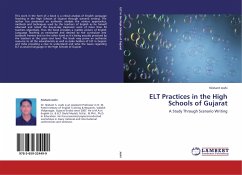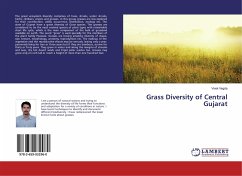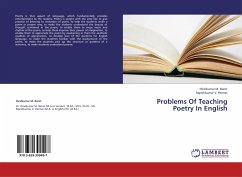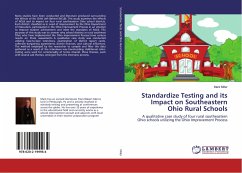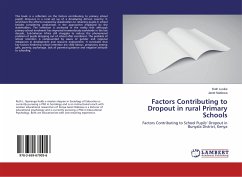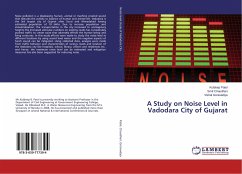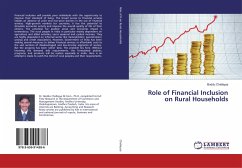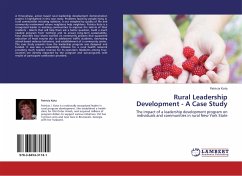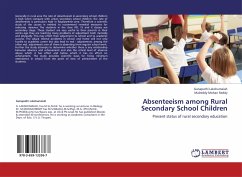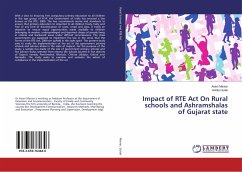
Impact of RTE Act On Rural schools and Ashramshalas of Gujarat state
Versandkostenfrei!
Versandfertig in 6-10 Tagen
47,99 €
inkl. MwSt.

PAYBACK Punkte
24 °P sammeln!
With a view to ensuring free compulsory primary education to all children in the age group of 6-14, the Government of India has enacted a law known as the RTE, 2009. The law recommends norms and standards to ensure that primary education to imparted to all children freely, fairly and free of any kind of discrimination of caste, creed and class. It holds an objective to ensure equal opportunities made available to children belonging to weaker, underprivileged and deprived classes of people living in remote and backward areas under difficult circumstances. The state governments are supposed to i...
With a view to ensuring free compulsory primary education to all children in the age group of 6-14, the Government of India has enacted a law known as the RTE, 2009. The law recommends norms and standards to ensure that primary education to imparted to all children freely, fairly and free of any kind of discrimination of caste, creed and class. It holds an objective to ensure equal opportunities made available to children belonging to weaker, underprivileged and deprived classes of people living in remote and backward areas under difficult circumstances. The state governments are supposed to implement the law in the sense that the norms of the RTE Act, 2009 are upheld in the right spirit. The present study aims to study the implementation of the act in the government primary schools and ashram shalas in the state of Gujarat. For the purpose of the study, a sample has made of the size of government primary schools and five ashram shalas selected from among the schools located in five districts of Gujarat namely, Panchmahal, Bharuch, Chhota Udaipur, Dahod and Narmada. The study seeks to examine and evaluate the extent of compliance in the implementation of the act .



